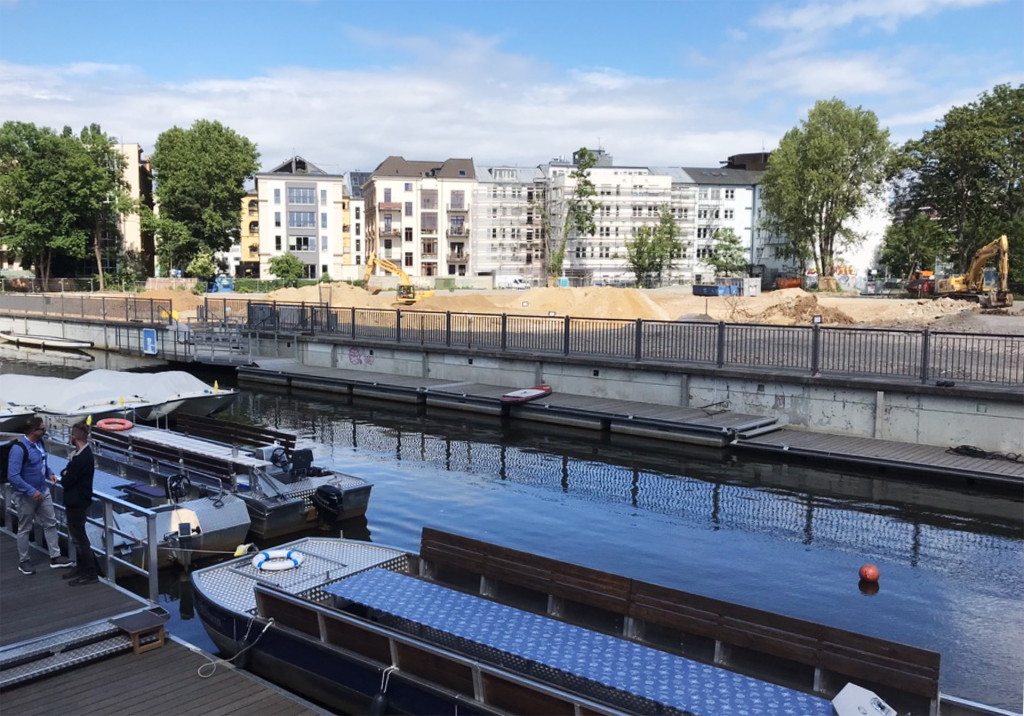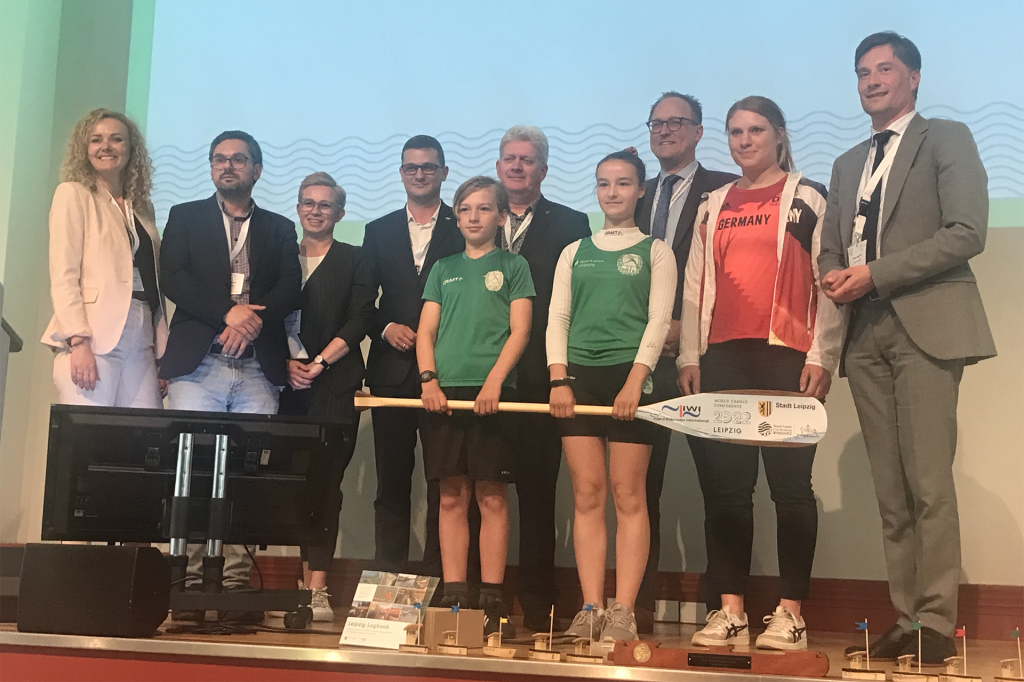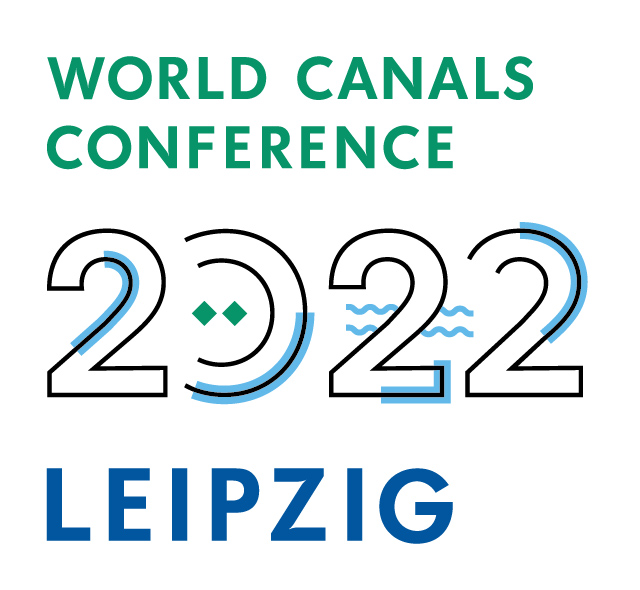WORLD CANALS AS A FOCUS FOR REGENERATION
The World Canals Conference returned to Europe in 2022. Planned for 2020, the WCC arrived in Leipzig, Germany, this year, from 30 May to 3 June.
The conference brings together waterways professionals, engineers, experts and politicians. Inland Waterways International (IWI) President Rudy Van der Ween opened the conference after a greeting from Dr Bettina Hoffman, Federal Minister of the Environment, Nature Conservation, Nuclear Safety and Consumer Protection. Other keynote speakers included Leipzig’s Deputy Mayor, the Prime Ministers of the Free State of Saxony and Saxony-Anhalt, other German state Ministers, the Deputy Minister of the Environment from Armenia and European Commission representatives.
All the keynote speakers picked up on the conference theme of Reshaping Landscapes – Waterways in Transition. Leipzig has a strong link with water as an agent of change, well-being and environmental improvement. Situated in Saxony (formerly GDR), Leipzig was a centre of open-cast lignite (brown coal) mining, which caused massive environmental damage during the industrial era, now finally drawing to an end. With the collapse of the industry after reunification, a legacy of landscape devastation and large-scale unemployment remained. The conference brought a positive message of new jobs created in renewable energy and tourism, and revived landscapes, mainly through creation of lakes in the old mines. Study tours took delegates to some of the repurposed sites.
There was a strong emphasis on the power of water to promote sustainability, tourism and well-being. A telling statistic from Catherine Topley of Scottish Canals was that a 3% decrease in mental illness was measured in people living 50 metres or less from a body of water. Speakers from the USA, Armenia, Belgium, the Netherlands, France, the Czech Republic, China, Vietnam, Northern Ireland and India all echoed this theme.
Leipzig has its own waterways system – the Elster river (navigable for a short distance within the city) linked with the Karl-Heine Canal, built by a forward-thinking industrialist in the 19th Century for water freight. One of the study tours included on a boat trip through this tranquil blue/green corridor, well-used by walkers, boaters (especially canoes) and cyclists.
Another waterway connection is the unfinished canal intended to link Leipzig with its nearest navigable river, the Saale, a tributary of the Elbe. The canal was started in the 1930s, beginning at the Lindenauer Harbour on the western outskirts of Leipzig, and reaching westward for 11 km before work stopped in 1943. Construction never resumed, leaving a tantalising 8km gap to the Saale river, with two almost complete locks stranded in a field at Wüsteneutzsch. This monumental piece of concrete construction was the subject of another site visit accompanied by Klemenz Muller of the Federal Waterways Administration.
There are plans to complete Leipzig’s missing link to the German waterways network but as always it is a question of money and political will.

The pre-conference tour visited Berlin and Niederfinow on the Havel-Oder Wasserstrasse to the northeast of the German capital. Behind the scenes access to the existing 1934 ship lift and its successor, built alongside, due to open on 4 October 2022, was accompanied by the site’s manager, Jan Mönikes. The local association hopes to be able to operate the old lift permanently, alongside the new one.
A 1914 lock flight, now disused, lies hidden in the bushes while the original Finow Canal is still in operation. A trip on this narrow canal, in the wooden launch Funtensee, with the chairman of the Friends of the Finow Canal, Hartmut Ginnow-Merkert, completed the tour.
The post-conference tour took in Magdeburg, where the Elbe-Havel Canal crosses the River Elbe on an impressive aqueduct, opened in 2003 to replace a notorious waterway bottleneck. Christian Ruszczynski of the Magdeburg Office of the Federal Waterways provided all the waterways facts and figures a canal geek could wish for. The WCC is taking a break in 2023, but returning to Europe from 24-26 June 2024 in Bydgoszcz, Poland, and back to the USA in 2025 in Buffalo on the Erie Canal.

Jan Gascoigne

